- Home
- Michael Crichton
Scratch One Page 8
Scratch One Read online
Page 8
The swarthy man looked up, his face a pale mask.
Liseau reached into his bag and removed a bottle of sulfuric acid, a medicine dropper, and two scalpels. The man looked at the gleaming instruments set out on the table, and then at Liseau. He began to sweat, and his mouth was twitching.
“I have no wish to harm you, my friend. But I do need some information. When you have told me what I must know, you are free to leave. Do we understand each other?”
The little man smiled bleakly. He knew that he would never leave the room alive. “Espèce de con,” he snarled.
Liseau shrugged. “As you wish. Let me tell you what I propose to do if you remain unhelpful. I will cut away the skin of your finger, exposing the nerves and flesh beneath. Then I will apply this acid, ninety-five percent sulfuric, drop by drop. It is quite painful, even on the bare skin.”
To demonstrate, he filled the dropper and let a single yellowish drop splash onto the back of the man’s hand.
The response was immediate. His face twisted in pain, his eyes shutting in agony. The muscles of his jaw and neck stood out strongly. Liseau wiped away the drop.
“That is nothing,” he said. “Can you imagine how it must feel when the acid enters a cut so deep the bone is exposed? Can you imagine it applied to the raw, exposed nerves of your finger? Do you know how it will bubble and sizzle as it eats through your flesh?”
The man’s eyes were wide with terror, but he said nothing.
“Tell me. What is your name?”
The man shook his head.
“I see we shall be here a long time. I had best have some refreshments.” He went to the door, and returned with the tray of beer and snacks. “I’m very hungry,” Liseau said, picking up a cracker and spreading pâté over it with his scalpel. He took a sip of beer. “Are you hungry, my friend? No?”
Quite abruptly, the man was sick, retching and heaving all over his bare chest.
“Dear, dear,” Liseau said, crossing his legs and making no move to clean up the mess. The smell was horrible, but as a surgeon he had become inured to smells. They did not bother him; he ate calmly.
“Tell me,” he said. “What is your name?”
The man swore, and retched again. Liseau, with the glass of beer in one hand, picked up his scalpel delicately with the other.
“Who are you working for?”
No answer.
“Why did you see the American?”
Silence.
“These are questions that must be answered,” Liseau said. “And unfortunately, only you can answer them.” He set aside his food, and examined the hands thoughtfully. He noticed, then, a white band of skin on the small finger. “I see you normally wear a ring. Where is it?”
The man shook his head.
Liseau picked up the scalpel and drew it lightly down the length of the middle finger. The skin was cut, but not deeply enough to draw blood.
This was the moment the little man had been waiting for. Up to now, it had all been bluff, psychology, words. Now came the pain—the pain he must somehow withstand, and turn to his own advantage, so he would die quickly. Could one commit suicide by holding one’s breath? He didn’t think so.
“Where is the ring?”
The little man made a vulgar noise.
Liseau sighed again, and held the scalpel poised over the finger. Abruptly, he jabbed the point into the knuckle. Pain streaked up through the man’s brain; he threw his head back and sucked in his breath.
“Did you perhaps give it to the American?”
No answer.
Liseau cut again, deeply, along the length of the finger. He felt the blade scrape against bone. Blood flowed quickly, and he made no attempt to stop it. “Where is the ring?”
The little man’s eyes were wide, and he retched again, dryly. “I lost it,” he gasped.
“That’s better. I am glad to see you can still speak. Where did you lose it?”
“I don’t know.”
Holding the cut wide with his fingers, Liseau added a drop of acid. The man closed his eyes and screamed wildly, struggling in his bonds, dripping with sweat. He did not stop screaming until Liseau added a drop of sodium hydroxide, to neutralize the acid. The man’s head fell down on his chest, limp, exhausted.
“You are hoping to faint,” Liseau said. “It is quite impossible. I have given you an injection which will keep your heart beating fast. I am afraid you will remain awake for everything. Did you give the ring to the American?”
“I don’t know any American.”
Acid dripped again, sputtering inside the wound, blackening the flesh. Acrid smoke rose in a thin stream. The man gasped, and screamed. Liseau paused to insert a plug in one ear, then added more acid. He waited several minutes before applying the sodium hydroxide.
“Now then, shall we stop our little games? Just tell me your name.”
“Go to hell,” the man said weakly.
Liseau frowned, but actually, he was beginning to enjoy himself. He was always slightly disappointed when a subject turned out to be easy, quickly caving in and giving answers. He preferred the tough ones, the ones who hung on to the end.
“Perhaps you find this pain a trifle. If so, we can arrange a greater challenge. We could dissolve the ear off your head. That is quite amusing. Or we could listen to the interesting hissing sound this acid makes as it burns into your eyeball. What do you say, my friend? Have I captured your curiosity?”
Liseau talked calmly, conversationally. He knew perfectly well that the worst pain was in anticipation. The psychological component was far more horrible than the physical affliction. It was like pleasure, like sex—all in the head.
The little man knew this, too, and he tried to ignore the quiet voice. He did not want to know what was coming, did not want to think of it, to imagine how it would be.
“The tongue?” Liseau said, as if thinking aloud. “Or perhaps the nose? I have seen a man’s nose destroyed by acid, drop by drop, until there was nothing but a gaping hole in the skull. That is quite painful.”
The man said nothing.
“What is your name?”
“I don’t know.”
Liseau chuckled. “Quite a brave man, aren’t you? But as a man, I will make you talk. Do you know what I have in mind?”
The little man did not look up, but his skin crawled.
“There are many areas of the body more richly innervated than the finger. Can you think of any?”
Oh, God, thought the man. Oh, God, no.
Liseau gave a slow laugh. “I imagine you have the general idea. Instead of your finger, we will try somewhere else. The same technique, but in a much more … responsive area.”
He reached forward.
“And you will talk, my friend. You will tell me everything.”
“Tell me everything,” the psychiatrist said. “Anything that comes into your head.” Ralph Gorman lay full-length on the couch. It was silent in the room, except for the faint scratching sound of the doctor taking notes.
“It was a bad day,” Gorman said. “I don’t really think I’m cut out for this sort of work. It was much better when I was in Amsterdam—bigger operation there, with more people to do the nasty jobs. Here, I have to be in on everything.”
“Hmmm,” the psychiatrist said, stroking his goatee.
“But mostly it’s my agent.” This was classified information, of course. Gorman knew it, but he had told his psychiatrist classified things before. It was all confidential, and besides, he had to talk to somebody about it, didn’t he? He couldn’t let it just sit inside him, building up his neuroses and aggressions. That was one of the first things he had learned from psychiatry.
“My agent won’t contact me, and my ulcer has been acting up. He’s cheeky, that’s the problem. He thinks he can do without me. He doesn’t think he needs me. But he does; he could get killed. They’re on to him; I know it.”
“Hmmm,” the psychiatrist said. “You have contacted him?”
�
��Oh yes, I did that yesterday. He just pretended he didn’t know who I was. And my ulcer kicked right up. Then we had the girl to question, and—”
“You did not mention any girl before.”
“Well, we picked her up last night. Snatched her right out of my agent’s bedroom. She was one of them, you see. And we questioned her. Beautiful girl. Very large breasts. Beautiful girls make me nervous.”
“Of course,” the psychiatrist said, taking notes. Gorman was reassured by the quiet, cultivated Viennese accent. When he was finished talking about the girl, they would look over his doodles together. That was the part Gorman liked best The doctor said he had some real artistic potential, though naturally it was the subconscious meanings, the sexual symbols, which were important. Gorman had learned a lot about himself since he had started analysis.
Roger Carr dined in the hotel and went directly to the bar after dinner. He did not feel much like going out on the town; just a quiet evening, and early to bed. That was unusual for him, but he was depressed by what had been happening to him.
He sat down at the bar and ordered a gimlet. Alongside him, two meticulously dressed men were arguing in vehement Italian. He understood none of it, but caught the French idioms sprinkled throughout their dialect. Probably Ligurians, he thought, from just across the border. Whatever they were, they were making a lot of noise.
His drink came, and shortly afterward the two men left. He sipped the cold, smooth liquor and lit a cigarette, and the next thing he knew, a soft voice was saying, “Do you have a match?”
He looked over to see a stunningly beautiful girl. She was Eurasian, her body slim and hard beneath a tight silk sheath which emphasized her firm, small breasts. Her face was gentle, friendly, sensual.
“Day or night,” he said, lighting her cigarette. He looked around. She seemed to be alone—what tremendous luck. Or was it? Another trap? He squinted at her critically. If this was a trap, he could have a hell of a lot of fun falling into it. “Join me in a drink?”
Her smile was demure. “You are very kind.”
He ordered for her, and they left the bar for a corner table, with high-backed leather chairs. Her silk dress rustled as she walked, and a slit up the side gave a glimpse of a dark smooth thigh.
When they were seated, she gave him a beautiful smile. She was a very feminine girl, but without the delicate, fragile look of so many mixed Orientals. Her sloe eyes were large, and very brown; her lips were large, her teeth even and brilliantly white. Her face was a perfect oval, framed by long, jet-black hair.
Roger Carr introduced himself, and told her he was a lawyer. She said she was an airline stewardess, with two days free. It seemed a very pointed announcement, and his heart thumped. He turned on his most boyish, engaging grin.
“I have a message for you,” she said.
Oh, oh, he thought.
“We are pleased with what you did today,” she said, “although G. still wants to see you. He wishes you to call tomorrow, or give me a message.”
“This is the airline company?”
She laughed, very gently. “Très drôle.” She seemed genuinely amused.
“It is strange,” the girl said, as the drinks arrived. “I did not think you would be this way. So open, and friendly.” Another smile. “I know what you did today. It was so daring. You must have very good nerves.”
“Steel, pure steel,” he said, puffing up his chest. With luck, he’d have this little thing in bed inside an hour. He grinned.
“Are you really a stewardess?”
“Of course. And you are a lawyer.” She smiled back at him. “You’re cute. I expected someone much more serious, with perhaps a scar on his cheek.”
“Well, you know how it is,” he said, hoping she did.
“Yes,” she answered, in a small awed voice.
Oh, baby. Easily an hour.
“You must be very strong,” she said, her hand still on his arm.
“Not really,” Roger Carr said smoothly, but he flexed his bicep. “I believe in delicacy.”
“I agree,” the girl said. She hesitated. “Do you have a message for me?”
Oh, do I. “Well,” he said, leaning back, “I think this place may be a little too public.” He glanced around the room, as if to confirm his judgment.
“Shall we go to my room?” she asked.
“That’s a very good idea,” Carr said, his face solemn and businesslike.
As they left, Carr saw the big blond fellow standing at the bar. For a brief instant, their eyes met, and then the big man looked away. It was slightly unnerving, that exchange of glances, but the girl was on his arm, soft and warm, and his thoughts were elsewhere.
It was dark in the room, and warm under the covers. The girl rubbed up against him, and purred softly.
“You are wonderful,” she said.
Carr smiled in the dark. It’s true, he thought. What can I say?
“So strong, yet so gentle.”
He put his arm around her and drew her closer.
“You must have many women, all over the world.”
“Well—”
She put her finger to his lips and kissed his shoulder. “Don’t tell me about them. Tonight, I have you all to myself. Is there more champagne?”
“A whole bottle.”
“Ummm.” She pushed back the covers and turned on the tiny bed lamp. In bare feet she padded over to the silver ice bucket. A truly sleek body, Carr decided, watching her. They just didn’t come in that model in America. All those firm, slender muscles, yet still soft and feminine.
She picked up the bottle and turned to him. Her long hair covered one breast. “Would you open it?”
“My pleasure,” he said, in his most gallant voice. Roger Carr would never refuse to open a champagne bottle for a nude lady at two in the morning. It was one of the few things in the world which he regarded as unthinkable.
As the cork popped and bounced off the ceiling, she said, “You must tell me the message, in the morning.”
“In the morning,” he promised, and they went back to bed.
By nine-thirty the next morning, Roger Carr was in his own room, taking a shower, humming “I Want to Hold Your Hand.” Things were cheerful again. He had left the girl in her room, blissfully asleep. That was convenient, since he had avoided any “message.”
Obviously, she wanted to be told something, but he couldn’t imagine what.
Chapter X
“I AM NOT SURPRISED,” Liseau said to Brauer. “I did not really think he would last the night.”
He concealed his frustration well. The little porcupine of a man had taken unbelievable punishment, and yet said nothing of any importance, nothing Liseau could not have discovered for himself. To fight the pain, the little man had bitten his tongue so often that finally, toward the end, it was a swollen, bloody pulp; he could not have talked then, even had he wanted. And he had not wanted.
It was a serious setback—particularly since Liseau was now convinced that one of his group was about to sell out. Perhaps the American could shed light on the question. He thought back to the taped conversation he had heard, and shook his head. If the American was genuinely uninvolved, he would be merely confused and confusing. There was no sense in complicating things still further. At the same time, he had to know which of the group was going to double up. It was absolutely vital to discover that.
“Has Carr gone to the consulate yet?”
“No,” Brauer said.
“Let us see,” said Liseau, “if we can put a little pressure on him. Let’s see which way the cat jumps when the heat is on.”
If he went to the consulate under stress, that would settle everything.
“What do you have in mind?” Brauer asked.
“It’s rather gruesome,” said Liseau cheerfully.
The real-estate offices of K. D. Graff et Fils were located along the Boulevard Victor Hugo. Monsieur Graff, a man with a neatly clipped moustache and a gold-plated cigarette holder, se
emed surprised at Carr’s inquiries—the villa had only recently been offered for sale, and had not been advertised. Carr remarked that he had his sources, and asked the price. He did not like Graff.
Monsieur Graff sighed. “Signor Perrani has not yet set a price,” he said. “He is Italian, a businessman, and you know how the Italians are.” Graff shrugged helplessly with his cigarette holder, a gesture which scattered ash over his silk shirt. He brushed it impatiently. “Everything with the Italians is hot air and hand motions. Not that I have anything against the Italians, of course. Italian culture is the second greatest in Europe.” He finished brushing, and adjusted his tie with two delicate fingers. “But I would say, monsieur, that when the price is fixed, it will be about three million francs, nouveau. That is about …”
“Six hundred thousand dollars.”
“More or less. Is that the price range you are considering?”
“It seems reasonable, for the moment.”
“Because if it is, I have several other villas available in that range. If you are interested, perhaps I can—”
“Thanks,” Carr said, “but I’d rather see the Villa Perrani first.”
“Of course, of course. I will call Signor Perrani myself this morning. Allow me to take your name.” Graff pulled out a gold-plated pen. “You wish the villa for yourself?”
“No, for a client.”
“I will take the name of your client as well.”
“I think my name will be sufficient.” Carr handed Graff his card, which the other man studied for some time, running his finger across the engraved surface.
“You are a lawyer.” He shook his head slowly. “You should know that Signor Perrani will be most particular about who buys his home. It is a lovely villa, in a lovely area. He will not simply sell it to anyone.”
“I don’t expect a trou for three million francs,” Carr snapped, “and I don’t think Signor Perrani will object to my client when I tell him who it is.”
Graff looked as if he had just stepped in a tub of scalding water. “Of course, as you wish, of course. I will call this morning. Shall I telephone your hotel later today?”
“Yes. The Negresco.”

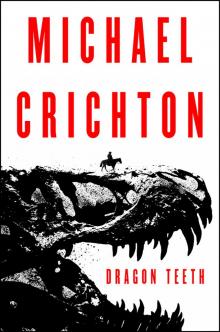 Dragon Teeth
Dragon Teeth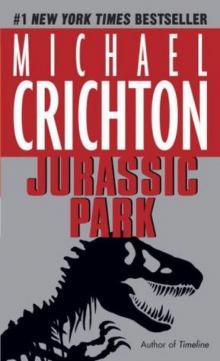 Jurassic Park
Jurassic Park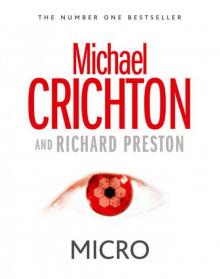 Micro
Micro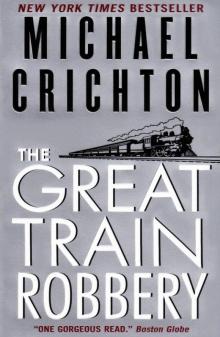 The Great Train Robbery
The Great Train Robbery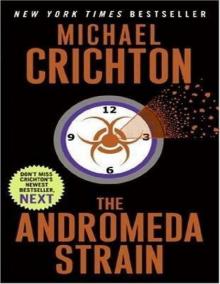 The Andromeda Strain
The Andromeda Strain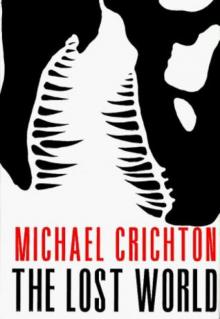 The Lost World
The Lost World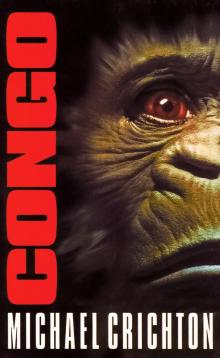 Congo
Congo Travels
Travels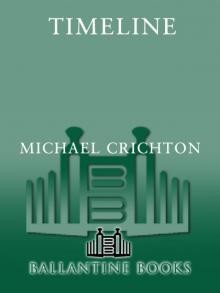 Timeline
Timeline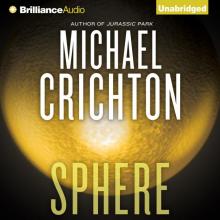 Sphere
Sphere Westworld
Westworld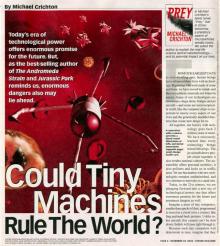 Prey
Prey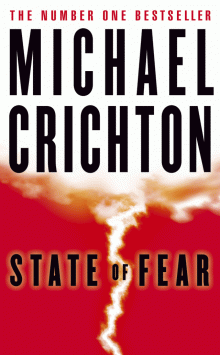 State Of Fear
State Of Fear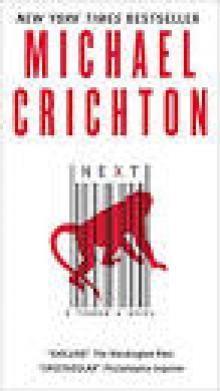 Next
Next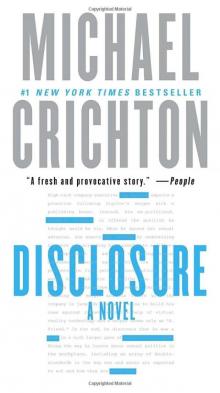 Disclosure
Disclosure Pirate Latitudes
Pirate Latitudes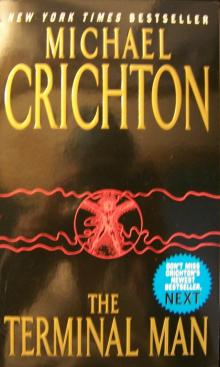 The Terminal Man
The Terminal Man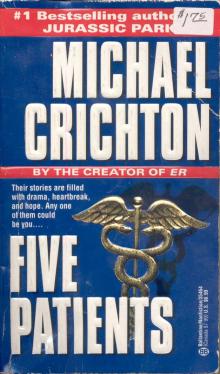 Five Patients
Five Patients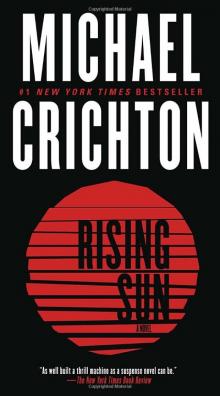 Rising Sun
Rising Sun Binary
Binary The Andromeda Evolution
The Andromeda Evolution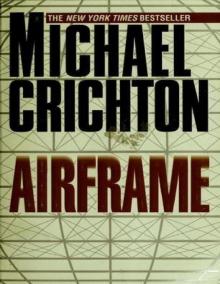 Airframe
Airframe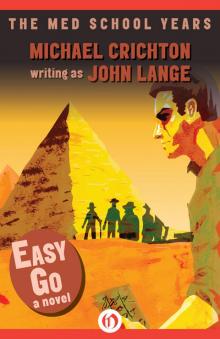 Easy Go
Easy Go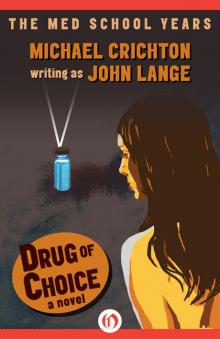 Drug of Choice
Drug of Choice Odds On: A Novel
Odds On: A Novel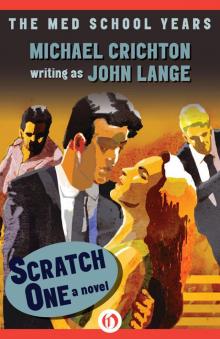 Scratch One
Scratch One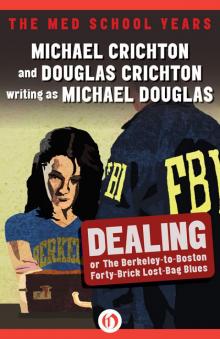 Dealing or The Berkeley-to-Boston Forty-Brick Lost-Bag Blues
Dealing or The Berkeley-to-Boston Forty-Brick Lost-Bag Blues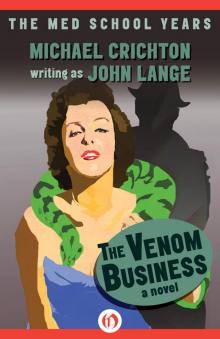 Venom Business
Venom Business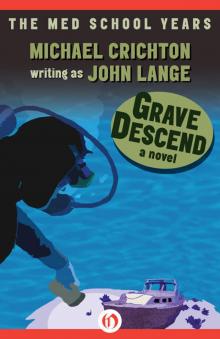 Grave Descend
Grave Descend Gold - Pirate Latitudes
Gold - Pirate Latitudes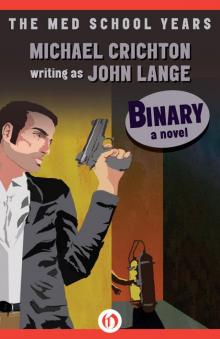 Binary: A Novel
Binary: A Novel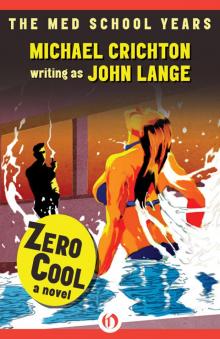 Zero Cool
Zero Cool Delos 1 - Westworld
Delos 1 - Westworld